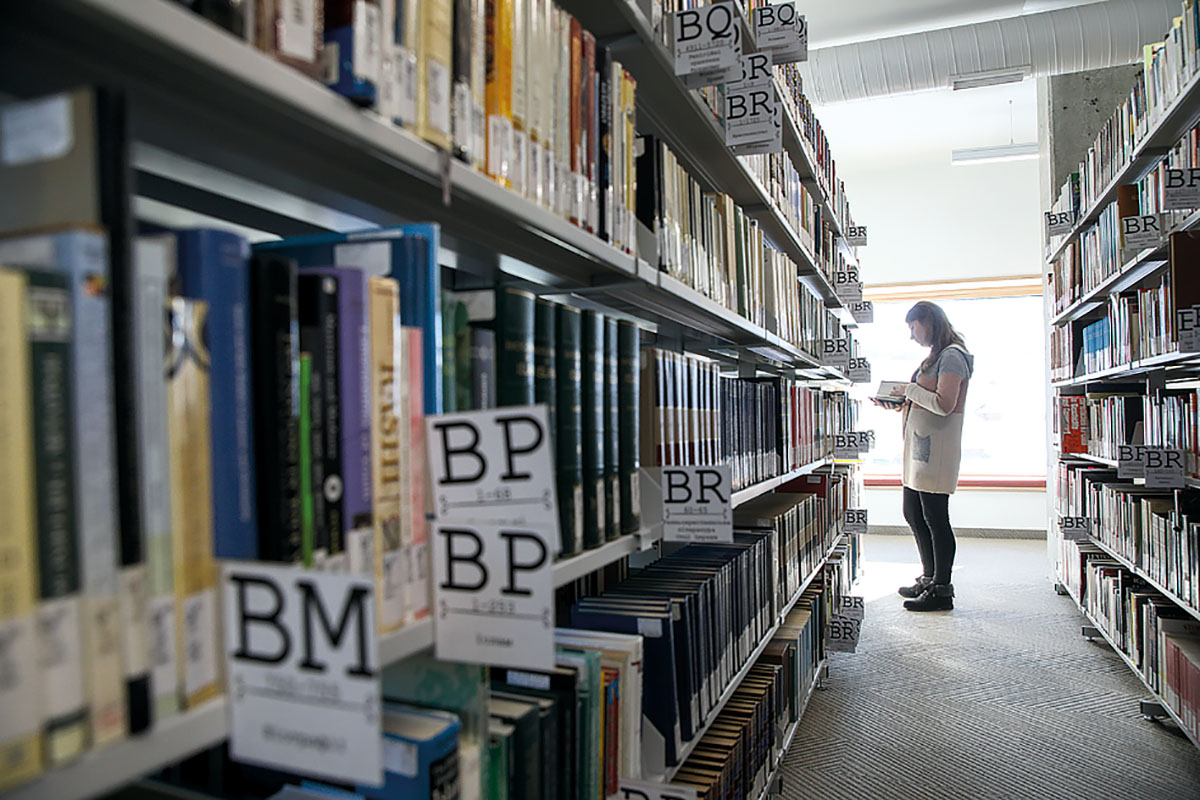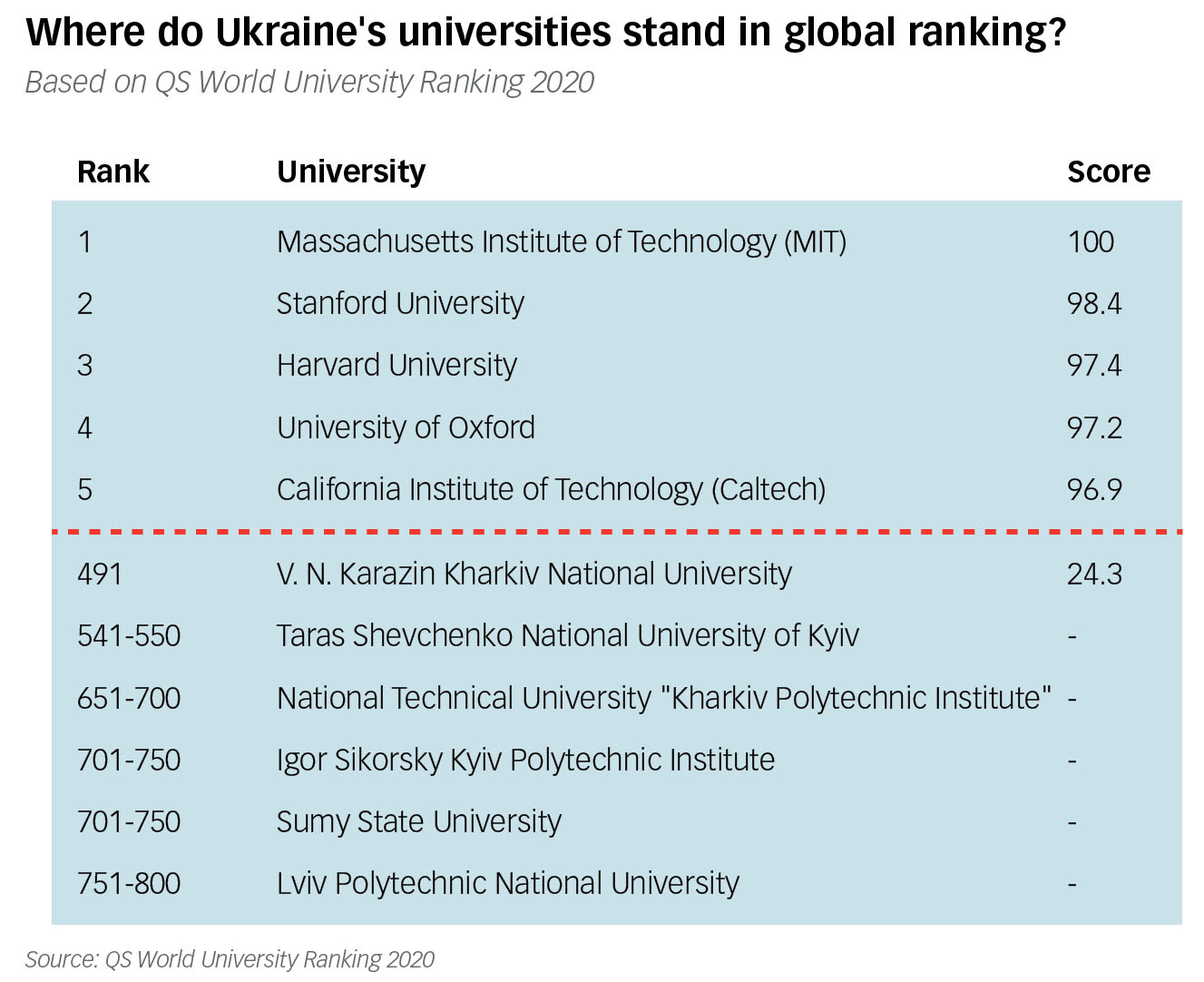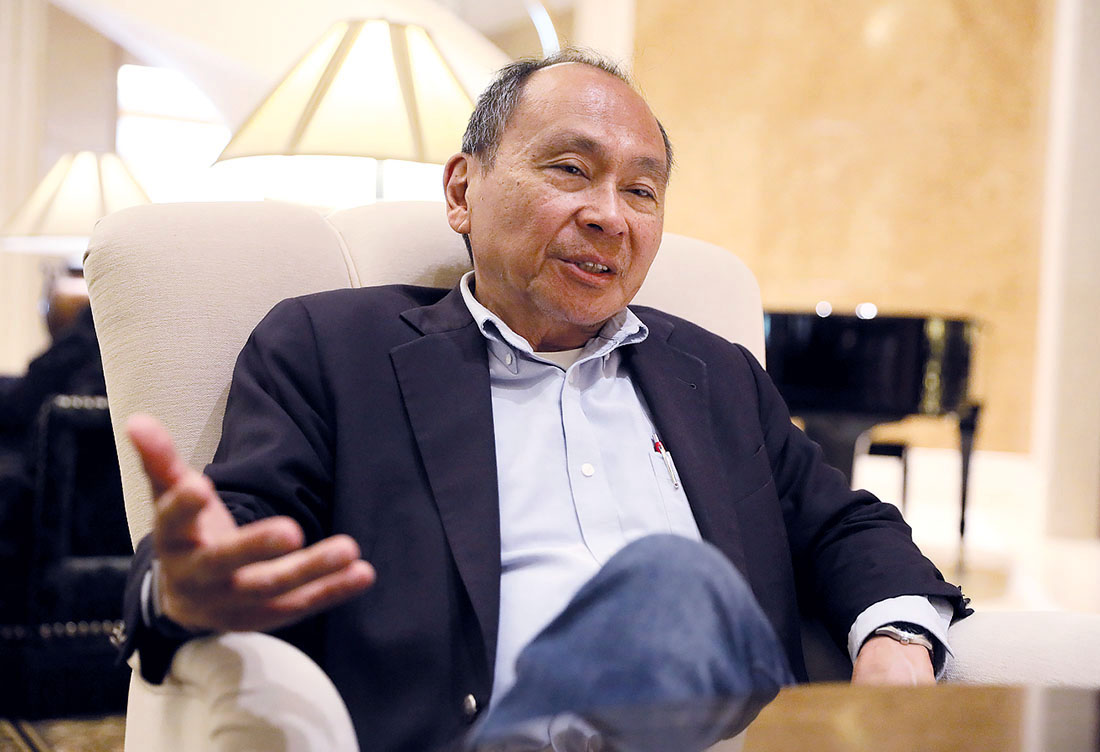Editor’s Note: Our 2019 Doing Business in Ukraine magazine is out. Get a PDF version online or pick up a copy in Kyiv.
Political scientist Francis Fukuyama’s books are often required reading in top universities across the globe, and today much of the academic’s attention is devoted to Ukraine.
Fukuyama says that after Russia began its military aggression in post-Soviet countries — such as in Georgia in 2008 and then in Ukraine in 2014, when it annexed Crimea and started a war in eastern Ukraine — he started to devote more of his attention to the region. Today, he is putting his efforts into finding solutions for Ukraine to prosper both economically and socially.
If Russia hadn’t “done that I wouldn’t have been as involved,” Fukuyama told the Kyiv Post during a recent interview.
Fukuyama’s expertise lies between international affairs, political science and economics and he has written extensively for leading publications such as the New York Times, the Wall Street Journal, Foreign Policy, the National Interest and Newsweek. He is also the chairman of the editorial board at the American Interest.
Earning his Ph.D. in political science from Harvard University, Fukuyama now teaches at Stanford University. He runs several leadership programs that provide opportunities for the brightest from all over the world, including Ukraine, to hone their leadership skills.
He has been visiting Lviv and Kyiv for several years now as he teaches to some of Ukraine’s brightest future leaders through Stanford University’s Leadership Academy for Development.
Judicial fix
As nearly every international and domestic reformer in Ukraine says, the top priority in Ukraine’s fight against corruption is to establish a truly independent and professional judicial system with an anti-corruption court that would have the ability to prosecute Ukraine’s top officials.
“That’s a political act because it means giving up power of politicians who don’t necessarily want to face judicial scrutiny,” Fukuyama said.
The process cannot be accomplished overnight and requires committed preparation.
“It’s a longer process because a lot of state modernization is about education and in order to have an independent judiciary you have to have a bar, you have to have lawyers and judges that receive the right kind of professional education and then they need an institutional autonomy so that they promote themselves and not politicians,” he said. “And that itself can be done and has been done in a lot of countries but not in Ukraine.”
And it can be done relatively soon — during President Volodymyr Zelensky’s term, the professor argues.
“I mean it has happened in Romania, it’s happened in Indonesia, there’s a lot of countries with high levels of corruption that managed to actually jail cabinet ministers, and governors, and officials of that level. That’s not going to fix the system but it will at least put people on notice that things are changing and that’s something that can be done this year if you wanted to politically.”
More SMEs, non-profits
But it doesn’t all depend on political will to eliminate corruption. The private sector can also play a major role by developing independent businesses that are more difficult to control for oligarchs.
“The main thing that I think Ukraine needs to do in the economy is to create something outside of the purview of these five oligarchs — and that’s really growing independent businesses. I mean that’s why the IT sector is really important,” Fukuyama said. “…The capacity is there but there is an organizational level that really hasn’t been achieved to the extent that it could be.”
Another vital component of a healthy economy and democracy is having truly independent media. Ukraine is still far from achieving this as its media market is dominated by oligarch ownership.
“The media is actually part of the ecosystem that reduces corruption. Independent media is usually the source of information about corruption,” he said.

Political scientist Francis Fukuyama has been visiting Lviv and Kyiv for several years, teaching some of Ukraine’s most talented students through Stanford University’s Leadership Academy for Development. (Volodymyr Petrov)
Cultural identity
One of Fukuyama’s most read books, “Trust: The Social Virtues and the Creation of Prosperity,” argues that social capital rests on culture. Ultimately, he argues, culture concentrates on the virtues and vices of ethical habits of a society, which define a society’s ability to spontaneously and easily cooperate with new communities and economically prosper. The good virtues that Fukuyama lists are: honesty, reliability, cooperativeness and sense of duty to others.
Ukraine is still defining its culture, and how it is shaped will define the country’s ability to economically prosper.
“We (recently) had a big conference on Ukraine at my center at Stanford… and we had a panel on culture and national identity. (Member of Parliament) Hanna Hopko and (University of Notre Dame professor) Yuri Avvakumov were on that panel and I think it was quite an interesting discussion,” Fukuyama said. “I do think that Ukraine does need its own identity. Most Russians beginning with (Vladimir) Putin go around and say there’s no such thing as Ukraine, that it’s always been part of Russia and there’s no separate Ukrainian culture.”
But one very important cultural victory for Ukraine was the recognition of the Ukrainian Orthodox Church as independent from the Moscow Patriarchate by receiving autocephaly from the Ecumenical Patriarchate of Constantinople back in January.
He called it “an important step to show that, in fact, there is a possibility of religious independence and, therefore, since a lot of cultural identity is based on religion, that is one element of it,” Fukuyama said.
Another distinction between Ukraine and Russia is that Ukraine is much more democratic: “…it’s the fact that one is a free country and the other one isn’t, that’s something that is very valuable. Ukrainians ought to be proud of the fact that they can walk around and criticize the government, organize political parties and you know, pretty much, be free people.”
But, according to Fukuyama, it takes a lot of time for a country to create its own culture and identity.
“Every country needs to live with its own historical legacy and you can’t just create a national culture out of thin air. And you know the legacy of communism is something that pervades the whole former Soviet Union. And I think that that’s something that needs to be overcome. I think that’s a generation-long project. Or maybe a multi-generation-long project.”
Golden rule: Education
And an important factor will be reforming Ukraine’s education system, Fukuyama believes, as one of the fundamentals in nation-building and reforming a corrupt system is changing the education process.
“Most modernization projects have actually begun with an educational reform and it actually starts not with elementary school but with (higher) education,” he said.
But Ukraine’s higher education has placed a greater emphasis on technical skills and not so much on leadership and management: “What is needed is, first of all, a more specific emphasis on things like public administration. If you look at very high quality bureaucracies they are usually fed by specific training, (an) educational set of institutions that is designed to create very well-educated civil servants.”
“The other thing has to do with the style of education and this is something where we have gotten involved, because I think that, with a lot of Ukrainian education, there still is a hangover from Soviet times, a fairly rigid, hierarchical system of learning where you are really not expected to think on your own, think critically, in which I think cooperation is not particularly valued or taught.”

Ukraine’s universities are far from the world’s leading educational institutions, according to the QS World University Ranking 2020. Ukraine’s higher education system tends to be underfinanced and poorly managed.
Higher education corruption
In addition, it doesn’t take much to hear stories of bribe-taking in Ukraine’s universities for students to receive good grades. Ukraine’s higher education is typically still inefficient, outdated and underfunded. State universities struggle to finance their campuses.
One solution is to bring in more competition, including private players.
“That’s part of the solution. We’ve been working with the (Ukrainian Catholic University) in Lviv, which is private and it is really an excellent university,” Fukuyama said. “I think one of the things that the American system is very strong in is… not just private education but its competition among different schools for academic excellence.”
Post-Soviet region
Ukraine’s success in fighting for reforms and becoming a sustainable and successful democracy with a strong economy will mean a lot not only for its people but for the future development of the post-Soviet region, Fukuyama says.
“A lot of former communist countries are going to be affected by that. Not just in the former Soviet Union, but I think also in eastern Europe; it’s going to set a very bad precedent if Ukraine becomes a kleptocratic, authoritarian country again like Russia,” Fukuyama said. “I think that Putin understands that perfectly well, he does not want Ukraine to succeed because he doesn’t want anyone to think that they can become a real European democracy in the former Soviet space.”
Russia still has a strong grip on Ukraine’s economy as it is the leading single country trade partner, although bilateral trade has been decreasing significantly. But Russia can still manipulate Ukraine’s image by extending military operations within the country’s borders, thereby scaring off investors.
Fukuyama believes, however, that Russia could eventually defeat itself through the approaches it has been using.
“There’s also a certain benefit to that Russian aggression because I think that it created a Ukrainian national consciousness in a way that was not so evident before,” he said.

Francis Fukuyama, world-renowned academic and author of “The End of History and the Last Man” and “Trust: The Social Virtues and the Creation of Prosperity,” speaks with the Kyiv Post at the InterContinental Kyiv hotel on May 22, 2019. (Oleg Petrasiuk)
Zelensky concerns?
Fukuyama is hopeful regarding Zelensky’s presidency. But he is also concerned because too little is known about the new president.
“He can be a great president but we don’t know at this point. I just think that there is danger, but there’s also big opportunity here. I just think that we’ve got to give the guy a chance to see what he’s going to do,” Fukuyama said.
Asked whether he was concerned that the president has no political experience, Fukuyama said that it will really depend on who the president surrounds himself with.
U. S. President Donald Trump “didn’t have much background in politics and never thought that it was important to acquire any expertise. But he also didn’t think that it was important to surround himself with people that had expertise. And that’s where I think he has been such a disastrous president; whether Zelensky will do that or not, we don’t know yet. It’s possible that he will go a very different direction and realize that.”
